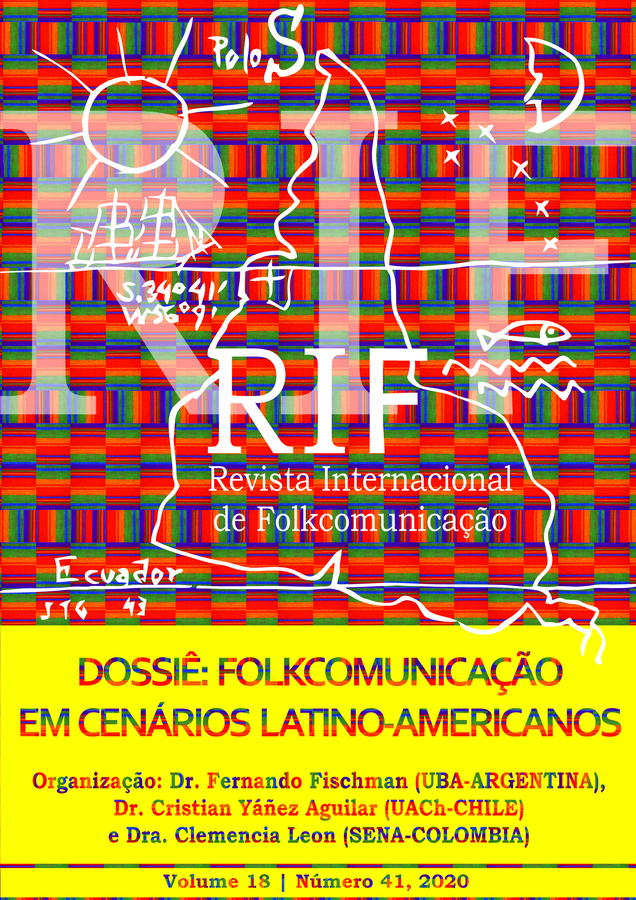Bases teóricas do Ciespal: a década de 1960 foi um período funcionalista?
DOI:
https://doi.org/10.5212/RIF.v.18.i41.0001Resumo
Este texto é uma reflexão sobre o entendimento de que entre 1960 e 1973 o Centro Internacional de Estudos Superiores de Comunicação para a América Latina (Ciespal) passou por um “período funcionalista”. Tendo por base pesquisa bibliográfica e documental realizada no acervo desse Centro e o estudo de obras de Émile Durkheim, Bronislaw Malinowski e Robert Merton, buscamos aproximações e distanciamentos entre as indicações de investigação presentes em materiais do Ciespal dos anos 1960 e o funcionalismo. O estudo apontou que a comunicação para o desenvolvimento trouxe propostas políticas, enquanto que a Mass Communication Research (MCR) guiou o fazer científico, e que estas não trazem, necessariamente, em suas estruturas, o pensamento funcional. Ciespal; Funcionalismo; Mass Communication Research.
Downloads
Downloads
Publicado
Como Citar
Edição
Seção
Licença

Este obra está licenciado com uma Licença Creative Commons Atribuição 4.0 Internacional.
Os autores são responsáveis, em qualquer que seja o formato do texto, pelas opiniões expressas ou indiretas presentes em seus respectivos trabalhos, não endossáveis pelo Conselho Editorial e pelos editores da Revista, bem como pela autenticidade do trabalho. Ao publicar trabalhos na Revista Internacional de Folkcomunicação, os autores cedem automaticamente os direitos autorais à publicação para veiculação das produções acadêmicas, sem ônus para a Revista. Os autores detêm os direitos autorais do texto para o caso de publicações posteriores e concedem à Revista Internacional de Folkcomunicação o direito de primeira publicação, com o trabalho simultaneamente licenciado sob a Creative Commons Attribution License, que permite o compartilhamento do trabalho com reconhecimento da autoria e publicação inicial nesta Revista. Por serem publicados em revista de acesso livre, os artigos são de uso gratuito, com atribuições próprias, em atividades educacionais e não-comerciais, sendo permitida a publicação simultânea em repositórios institucionais.































